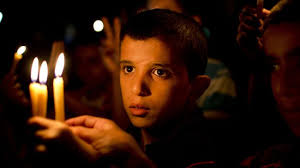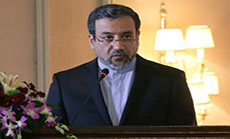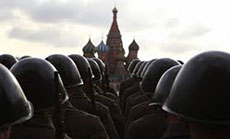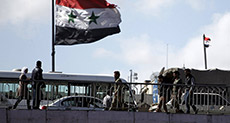
Gaza Plunges in Darkness, Falk Describes Gaza Situation as Catastrophe

Local Editor
The only power plant in Gaza has shut down its generators following a fuel shortage, caused by "Israel's" destruction of tunnels used for carrying fuel into the enclave.
 "The electricity crisis has been ongoing since the "Israeli" blockade. The main problem is not being able to find ways to provide fuels for power plant, which is 75 percent short of fuel. This is going to affect all sectors of life in Gaza," said Ahmad Abu al-Omarain, the director of Energy Information Center.
"The electricity crisis has been ongoing since the "Israeli" blockade. The main problem is not being able to find ways to provide fuels for power plant, which is 75 percent short of fuel. This is going to affect all sectors of life in Gaza," said Ahmad Abu al-Omarain, the director of Energy Information Center.
Fathi el-Sheikh Khalil, the energy authority's deputy chairman, said last week that the Palestinian Authority (PA) had pledged to deliver fuel to Gaza without tax, allowing the Hamas government to buy 400,000 liters of fuel a day. But the PA canceled its offer of tax exemption, making it difficult for Gaza officials to afford the fuel.
"We have been suffering from the fuel crisis since the Israeli blockade. Now the fuel crisis is worsening and the Palestinian Authority in the West Bank canceled its offer of tax exemption," said Jamal al-Derdsawi from the Electricity Distribution Company.
On a related note, independent United Nations human rights expert Richard Falk on Wednesday held a press conference and warned that developments in the Middle East region, "particularly in Egypt, have made the situation in Gaza one that is a point of near catastrophe."
Addressing journalists at UN Headquarters, the Special Rapporteur on human rights in the occupied Palestinian territories, Falk noted that because of the situation in Egypt, Palestinians now face increased isolation, lack of access to healthcare and other services, and are facing an uncertain future.
 In his second main point of his report to the General Assembly's Third Committee, the Special Rapporteur reiterated that the settlements are unlawful according to the Fourth Geneva Convention and pointed out that financial institutions and real estate companies involved with housing settlements in occupied Palestinian territory may be held criminally accountable.
In his second main point of his report to the General Assembly's Third Committee, the Special Rapporteur reiterated that the settlements are unlawful according to the Fourth Geneva Convention and pointed out that financial institutions and real estate companies involved with housing settlements in occupied Palestinian territory may be held criminally accountable.
Falk also recommended that the General Assembly seek an advisory opinion from the International Court of Justice (ICJ) as to the status and general legality of prolonged occupation.
He told reporters that "an occupation that extends beyond five years exceeds what is contemplated by the Fourth Geneva Convention."
"Israel" imposed the all-out land, aerial, and naval blockade on Gaza in June 2007.
The siege has had a disastrous impact on the humanitarian and economic situation in the impoverished enclave, having turned the territory into the world's largest open-air prison.
Source: Websites
Comments
- Related News

Hizbullah , Future Make Headway to Ease Tension
10 years ago
Iran: Resumed Nuclear Talks Useful
10 years ago
